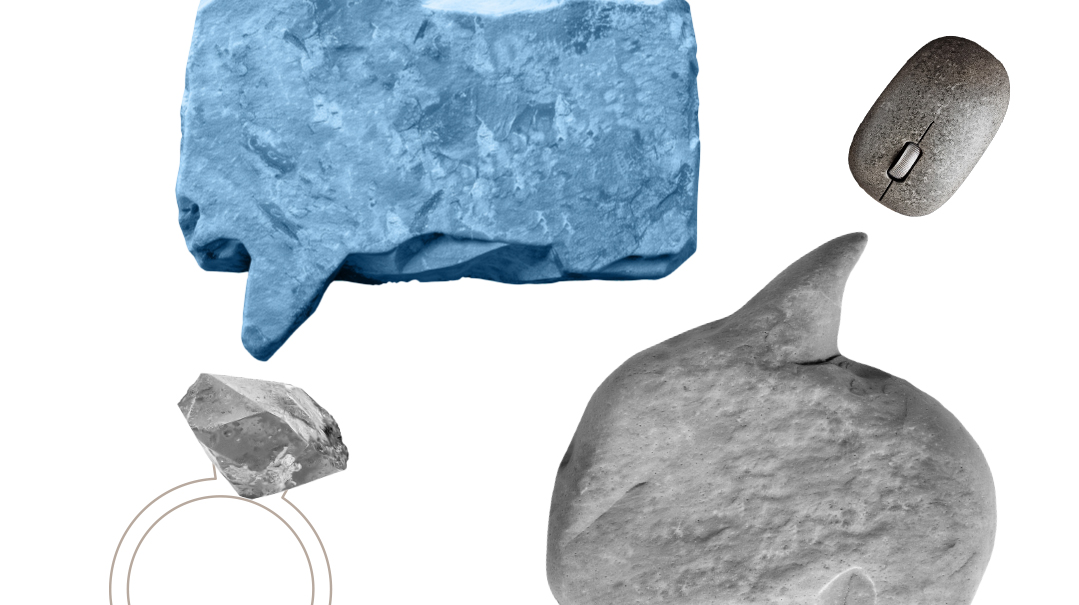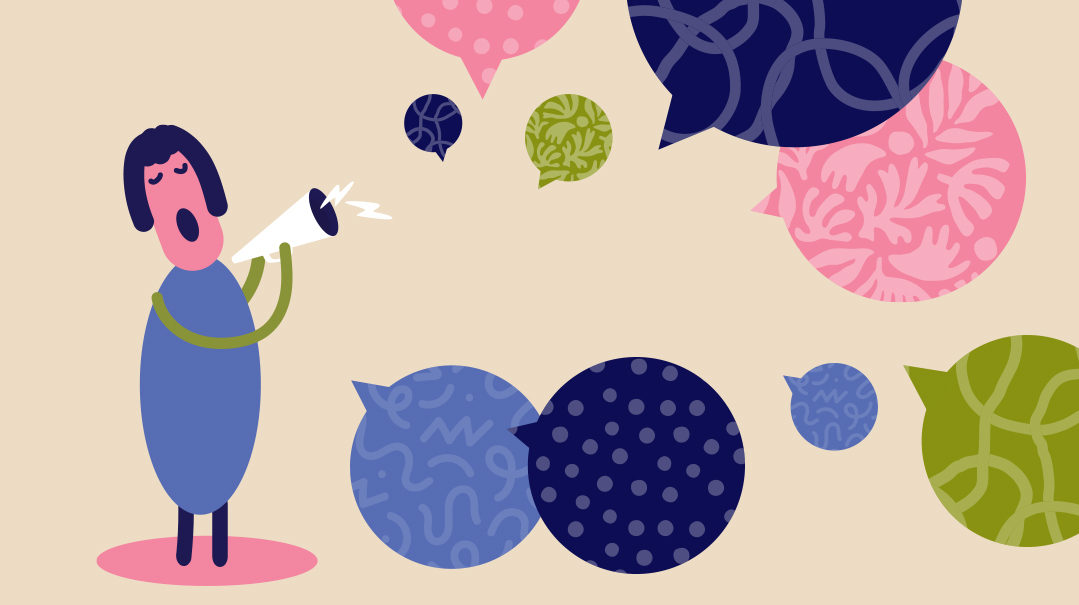Hunting for Happiness
| September 14, 2011What’s the secret to living a more content, joyful life? Researchers, psychologists, and other happiness hunters have been trying to figure that out. Here are some of the strategies they turned up

Around the globe, happiness is at the top of nearly everyone’s wish list. This state of mind — defined as a subjective feeling of positive wellbeing, joy, and contentment; a sense that life is good, meaningful, and worthwhile — is so sought after that America’s forefathers included “the pursuit of happiness” in the Declaration of Independence, right up there with the inalienable rights to “life” and “liberty.”
Not that most people need convincing, but happiness offers many fringe benefits, too. Research shows that happy people (as compared to their less-content friends) are more energetic, cooperative, and better-liked by others. They’re more likely to have satisfying marriages and be productive in their jobs. They’re more resilient, are better leaders, and even earn more money. To top it off, they have stronger immune systems and are physically healthier.
With a track record like that, it’s easy to understand why the pursuit of happiness has practically become an industry, with studies and self-help books hitting the press regularly. Here’s a quick peek at what these happiness hunters have discovered:
Pieces of Pie
Most of us have moments of contentment here and there, but how can you transform yourself into an overall happier person? Researchers have been trying to determine the precise formula that leads to strong and sustained feelings of happiness. In her book The How of Happiness, Sonja Lyubomirsky, a professor and research psychologist at the University of California–Riverside, offers just such a “happiness recipe,” including ingredients and directions.
Think of a pizza pie cut into ten slices. Half of those slices — 50 percent of your happiness quotient — is predetermined by your unique genetic makeup. You can tell a lot about your own “happiness DNA” by looking around at your relatives. Are they the type of people who smile incessantly, or are they known as brooders?
The most revealing research on the genetics of happiness pulled data from the Minnesota Twins Registry, which contained personal information from more than 8,000 pairs of twins born in Minnesota. This registry was used to conduct the Happiness Twins Study, which showed that the happiness level of one identical twin, “Jane,” was a better indicator of the happiness level of her twin, “Ellen,” than any other factor in “Ellen’s” life. This was true whether the twins were raised together — or separated at birth. Since identical twins share 100 percent of their genetic makeup, these studies offer compelling support for the idea that our happiness tendencies are largely inborn.
If your happiness “set point” is low, are you doomed to lifelong misery? Let’s take a look at the other half of the pie.
The “If Only” Myth
Out of curiosity, I performed a small (and decidedly informal and unscientific) survey of some friends and family to find out what people believe would make them happier. Many of the respondents said that a change in a particular circumstance — a job, an engagement, a slimmer figure, or a boost in finances — would make them happier.
Research, however, debunks this widely held assumption. Although a job change, pay raise, or a move to a new city can temporarily raise your happiness level, the effects are generally short-lived. The impact of life circumstances on your overall happiness is relatively small—a measly 10 percent (one slice of pizza).
While this may seem counterintuitive, research confirms these findings again and again. “People have a hard time accepting this truth because it’s ingrained in us that the events in our lives are what determine our happiness,” says Professor Lyubomirsky, who has been studying the psychology of happiness for over two decades.
In fact, one study demonstrated that circumstances people assume would make them highly unhappy — such as suffering from end-stage kidney disease — in fact had little impact on the overall happiness of the participants. The researchers asked two groups of people in this study to carry Palm Pilots for a week that were programmed to beep every ninety minutes, at which time the participants recorded their feelings. The first group was comprised of kidney disease patients who were forced to adhere to strict diets and endure uncomfortable and inconvenient hemodialysis for nine hours a week. The second group consisted of healthy participants.
Healthy or not, all of the participants in the study were convinced that they would be happier without the disease. Yet, surprisingly, the results showed that the renal disease patients were just as happy as the members of the healthy control group.
As for the last four slices of pizza, it seems that the ball is in our court. Studies have shown that 40 percent of our happiness is dictated by the intentional actions that we choose to perform, which either induce or reduce happiness.
“It’s hard to grasp that the problem may be us and not what we’re experiencing in our lives,” says Professor Lyubomirsky. “It’s kind of a cliché. But the secret to happiness is inside of us.”
She adds that the first step to shifting your mood is to “understand how important your choices are.” The major decisions matter, but it’s the little ones that can sometimes shift your mood the most, as researchers have discovered.
Attitude of Gratitude
The small act of expressing appreciation can impact your life in a big way — it can help you cope better during tough times, lead to improved personal relationships, and cause negative feelings like anger and jealousy to dissolve. No wonder it’s been dubbed a “happiness meta-strategy.”
One suggestion for incorporating gratitude into our daily lives is suggested by Rav Shlomo Wolbe ztz”l in his sefer Alei Shur. He recommends focusing on the brachah of she’asah li kol tzarki (“who has provided me with all my needs”) every morning.
You can also try this tactic: Once a week, for six weeks straight, write down five things for which you’re grateful, without ever repeating. Participants in a study who did just that saw increases in their happiness. But don’t overdo it — those who were instructed to do the exercise three times a week didn’t see any benefit.
This underscores the importance of keeping things fresh instead of slipping into rote, habitual behavior. It’s essential to vary your expressions of gratitude, perhaps choosing a different area of your life to focus on each time, so that it remains a stimulating exercise. You can also switch things up by writing a gratitude letter to someone, such as your parents, spouse, or a former teacher. A phone call works, too.
Another gratitude strategy is to focus on a positive aspect of a negative situation. When an acquaintance of my grandmother’s was complaining to her husband about their troubles in shidduchim, her husband replied, “Do you know why we have trouble with shidduchim? Because we have children. Baruch Hashem we have children.”
Creating Connections
Some studies point out the obvious — such as the fact that intimate friendships and positive social interactions make us all feel a lot better. But there’s more to it than that. When you reach out to someone new or invest energy in an old relationship, you’re likely to perform many small acts of kindness in the process. This is a crucial part of creating connections with others, but it also has happiness benefits — it strengthens confidence and builds optimism. This approach works even with people you may never see again, such as a parking attendant or bus driver.
I decided to run my own personal “act of kindness” experiment during a recent trip to the supermarket. While checking out, I made a concerted effort to chat with the cashier, asking her questions about her life. After sharing her life’s ambitions while bagging groceries, she looked noticeably more cheerful and I definitely walked out with a mood boost. As with the gratitude exercises, variety is key, so get creative with the possibilities.
You can also try this happiness booster: hugging. Students at Pennsylvania State University who gave or received five hugs per day over the course of five weeks reported higher happiness levels than a control group who recorded the number of hours they spent reading over the same four-week period. So find a child and give squeeze.
Social support isn’t just good for your mental health. When researchers analyzed communities of long-living people — including Sardinians in Italy and Okinawans in Japan — they discovered that the individuals shared certain key characteristics in common, such as putting family first and keeping socially engaged.
Weathering Storms
Whether you’re dealing with a minor stress or a major trauma, learning to cope effectively can alleviate the pain — and cause a sense of wellbeing to resurface.
When Avital Kagan* lost a prestigious teaching job due to budget cuts, she was consumed by feelings of rejection. “I felt like a failure and I was really down about it,” she says, “even though I knew it wasn’t really my fault.”
As she was thinking of ways to put her feelings in perspective, she remembered a book she had read on cognitive behavioral therapy, which listed helpful exercises.
“It took time to get over it, but the book really helped me get past it in a very healthy, positive way. I was able to accept myself and the situation and move on,” says Avital.
The next time you’re in a tough situation, you can try to shift your emotional state by switching activities or changing your environment. For instance, if you’re feeling angry, perform a low-energy activity — such as resting or taking a calming shower. When you’re feeling down, lift yourself up with a high-energy activity. Take a brisk walk around the neighborhood or phone an old friend.
Perhaps the most effective coping strategy is to cultivate your bitachon. On a daily basis, remind yourself that Hashem is in control of events and has your best interests in mind. You can even create a mantra for difficult situations, such as, “This is exactly where Hashem wants me to be right now.” The more you can weave bitachon into your life, the easier it will be to gain a new, clearer perspective on distressing incidents.
Grow with the Flow
For a number of decades, Hungarian-born social psychologist Mihaly Csikszentmihalyi has been studying an experience that he named “flow.” His influential studies describe flow as an intense absorption in an activity that’s challenging and engrossing. People in a state of flow can forget to eat and lose track of time. Flow also brings with it a spontaneous feeling of joy and mastery.
Avital is familiar with this feeling: “When preparing for teaching, I can become totally absorbed in the material. In those moments, I feel on top of my game. Sometimes, I’ll just blabber about the material to a friend or my husband because I get so involved and excited about it.”
To attain a state of flow, choose an activity that’s challenging and rewarding — but not too high above your skill level that you might become frustrated. As you master a new skill set, you need to raise the challenge level to maintain stimulation and experience flow.
Examples of activities that can induce flow are playing an instrument, participating in sports, doing activities that involve artistic skill, gardening, or even completing complex math problems (for those so inclined). Ultimately, it’s a personal thing. You have to find a challenging activity that you especially enjoy and can focus on.
Just as an experiment, choose one of the above strategies — or even a few — to stick with for a few weeks. You’ll be happy you did.
* Name has been changed
Feeling Blue?
If you’re overwhelmed with negative emotions and beliefs, you can try to shift your mood with this cognitive behavior strategy, known as the ABCDE disputation technique. Start by grabbing a pen and paper. Now write down the following:
Adversity: Record the problem or event you’re facing.
Beliefs: Pinpoint negative beliefs that are triggered by the problem.
Consequence: Identify how you’re feeling and acting as a result.
Dispute: Challenge the negative belief and think of other possible reasons for the problem.
Energize: Focus on a more optimistic explanation for the problem to help you become less anxious and negative.
(Originally featured in Family First, Issue 258)
Oops! We could not locate your form.






